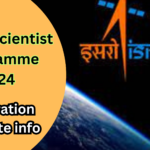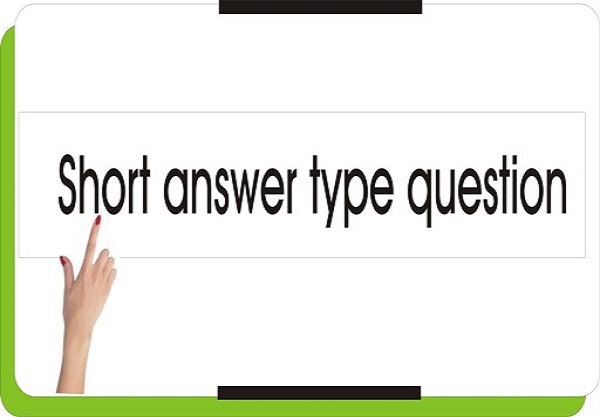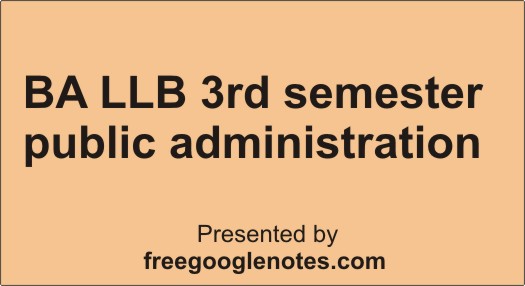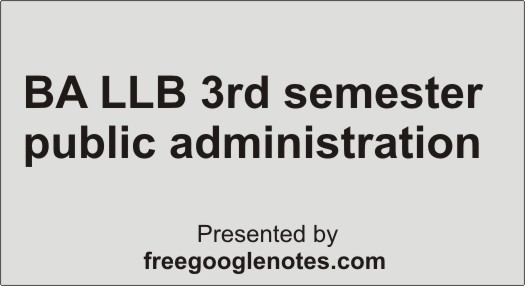Table of Contents
Q. 1. Give the definitions of Political Science ?
• The terms ‘politics, political science political theory and political philosophy are used as synonyms though there is slight changes in the shade of meaning, i.e. the study of state. Aristotle, the father or political science’ used the term ‘politics’ for the first time in his book ‘politics’. The term ‘politics’ is derived from the Greek word ‘polis which means .city-state’. The term ‘policy is derived from the Greek work ‘politeia’ meaning ‘government’ or ‘constitution’. Classical Definitions
J.W. Garner, “Political Science begins and ends with the state.
Paul Janet, “Political Science is that part of Social Science which treats of the foundations of the state and the principles of government. Modern Definitions
Max-Weber : “Politics is the struggle for power or the influencing of those in power.”
Rowe, “Political activity is the activity which is resolved and translated into policy.”
Robson, “Political Science centres on the struggle to gain and retain power, to exercise power or influence over others or to resist that exercise.”
Q. 2. Describe the importance of study of Political Science in Modern Era ?
Ans. Modern age is the age of democracy. So every individual involves in political activity in some way or the other. Every individual is directly or indirectly concerned with politics. Bernard show observes that politics alone can save civilization. The proper study of political science is significant both to society and to the individual.
(1) To solve the political problems, the clear understanding of the origin and development of the state and its nature and role is required.
(2) The knowledge of the past political thought and principles endive us to understand the present social, political and administrative
problem.
(3) Politics defines political theory well and describes the meaning of different terms with which everybody comes across day to day life.
(4) Knowledge of political science makes the individuals Concious of their role as members of the society, enlightens on their institution and gives the knowledge about acquiring citizenship.
(5) Politics makes people conscious of their rights and duties.
(6) Politics educates on ways of protecting liberty and justice.
Q. 3. Explain the legal approach or technique of the study of the political science ?
Ans. The legal approach is also called judicial approach, the. study of politics is linked with the study of legal and judicial processes and institutions, created by the state for maintaining a political organisation. The themes of law and justice are treated not as the affairs of jurisprudence, but are linked to the state as the state is regarded to be the maintainer of an effective and equitable system of law and order: Matters relating to the organisation, jurisdiction and independence of judicial institutions, therefore, become an essential concern of a political theorists.
In the words of Garner, the legal approach “treats organised society, not as a social or political phenomenon but as a purely judicial regime, an ensemble of public law rights and obligations, founded on a system of pure logic and reason.”
The legal approach firmly believes that law covers the entire behaviour of a man’s political action.
Q. 4. Give the meaning and definition of the state and explain the essential elements of the state ?
Ans. Aristotle, “State is a union of- families and villages having for its end a perfect and self-sufficing life by which we mean a happy and honourable life.”
Woodrow Wilson, “State is people organised for law within definite territory.”
The Essential elements of the state are :
(1) Population : Since the state is primarily a human institution, it must have population. We can not conceive of a state without human beings. There must be a number of families before a state can come into existence.
(2) Territory : Territory is another important physical feature of state. People must live permanently on a definite portion of land permanently to make a state.
(3) Government : Government is another important element of the state. The state cannot exist in the absence of government.
(4) Sovereignty : Sovereignty is the most important element of the state. Sovereignty is supremacy or supreme power of the state. It is a characteristic possessed by the state alone. It makes a state independent and supreme.
Q. 5. Write in short, the functions of welfare state.
Ans. (1) A welfare state exercises the essential functions such as the defence and maintenance of internal peace, order, safety of person and property
(2) The state goes for beyond the frontiers of functions like collecting taxes and maintaining peace and order with the aim of promoting the interests of the society.
(3) The state undertakes a vast number of functions, which aim at promoting the general welfare of the people as a to economic well being, social-security, public health education and so on.
(4) The welfare state maintains for common use roads, railways, bridges, posts and telegraph services, sanitation, health, education, libraries, playgrounds, hospitals, transport services and so on.
(5) The welfare state tries to reduce economic inequalities by a system of progressive taxation for the provide of common service. Il assures a minimum standard of living to everyone.
(6) The state takes steps to abolish illiteracy, poverty and unemployment. It establishes schools, hospitals and other institutions to meet te needs of the people.
Q. 6. Describe the main features of welfare state.
Ans. G.D.H. Cole, “The welfare state is a society in which an assured minimum standard of living and opportunity becomes the possession of every citizen.”
Features of Welfare State are : (1) A welfare state is neither a police state nor a socialist state.
(2) It functions within the framework of democratic political institutions in order to bring about the material welfare of the people.
(3) It is a synthesis of liberalism and socialism.
(4) It allows private property and regulates it in the general interest.
(5) It believes in the principle of mixed economy.
(6) It upholds the rights of all without showing discrimination against any individual or group of people.
(7) It regulates the economic and other activities of the people in the larger interests of society and does not allow a particular class to exploit the other classes.
(8) It establishes a social welfare state through democratic socialisation.
Q.7. Give the limitations on the scope of state activity.
Ans. The scope of state activity has expanded greatly. But the state can not do each and everything. There are certain limitations on the activity of the state :
(1) Religion, Customs and Culture : The state cannot interfere Faith and religion of the people. The state must be secular state.
Every society has some established customs. The state can not encroach upon them unless they are harmful to the society
(2) Morality : The individual is the sole authority to decide and
code of morality. The state has no justification to interfere in the moral view of the individuals.
(3) Public-Opinion: The main purpose of the state is to develop the personality of the individual. This is possible when the state does. not encroach upon the right of expression of the people.
Thus the state takes important place in modern era, in each and every sector of human life, but it also have some limitations.
Q. 8. Explain the functions of state in Modern Era.
Ans. Functions of Modern State : Dr. Garner classified the functions of Modern State into these categories : .
(1) Essential Functions or Compulsory or Primary Functions :
Defence from external invasion. O Establishment of law and order and provide protection from
internal disturbances. Organisation of justice to settle the mutual disputes of individuals and also those between individual and the state. Maintain relations with foreign powers. (2) Optional Functions or Secondary Functions :
Regulation of trade and industry including coinage, standardization of weights and measures, licensing of trade, tariff and navigation law etc.
Regulation of labour.
Maintenance of thoroughfares.
Manufacture and distribution of gas, the maintenance of water-works etc.
Sanitation
Education Care of the poor and incapable.
Care and cultivation of forests and like matters such as the stocking of rivers with fish. Sumptuary laws, such as prohibition.
Q. 4. What are the main differences between state and society ? Explain in short.
Difference between State and Society
| State | Society |
| (1) State is only a political association. It is part and parcel of society. (2) state is artifical. It is the creation of will and reason.However it has become a compulsory institution. (3)state is territorial institution. it is limited to a definite territory. (4) The state is smh only all part of the society and is concerned with only with the political activity of individual for social order. (5) state has an agency namely government to enforce its authority. (6) state can not exists without any society. | (1) The scope of society is wider.It is an association of many associations. (2) society is natural and instinctive to human beings. (3)society is universal society does not have territorial limitations. (4) society is the whole web of social relationships (5) society has no such authority or organisation to implement its principles. (6) society can exist without state. estimos have only society, no state. |
Q. 5. Explain the concept of Legal Sovereignty in short.
Ans. Legal Sovereignty : Sovereignty can be legal as well political. Legal Sovereign is that authority which has the legal power to issue final commands. Legal sovereign is that person or body of persons who by law, possesses authority to issue the highest orders in the state Courts recognise the legal sovereignty. Disobedience to the legal sovereignty results in punishment. According to Prof. Garner, “The legal sovereign, therefore, is that determinate authority which is able to express in legal form the highest commands of the state that power which can overside prescriptions of the divine law, the principles of morality, the mandates of the public opinion, etc.” The following are the characteristic features of legal sovereignty :
(1) It is always definite, determinate, organised, precise, and known to law.
(2) It alone has the power to issue commands. (3) Disobedience to its laws means punishment.
(4) All legal rights emanate from the legal sovereign and it can withdraw or annual them at its all.
(5) The authority of the legal sovereign is absolute and unlimited and supreme.
Q. 6. Define the concept ‘Law and describe the essentials of Law ?
Ans. According to Blackstone, “Law, in its most general and comprehensive sense, signifies a rule of action whether animate or inanimate, rational or irrational.”
Solmond says, “Law is the body of principles recognised and applied by the state in the administration of justice.” Essentials of Law
(1) The most dominating feature of law is its uniformity.
(2) The dominant character of law is that it is in the nature of enjoyments to be kept.
(3) The law should conform to the principles of justice.
(4) Law consists largely of ‘ought (normative) propositions prescribing how people ought to behave but not control their inner thoughts and motives.
(5) The law has the characteristics of impartiality.
(6) Another valuable character of law is its capability in procuring remedies in cases of infringement.
(7) Law is territorial in nature.
(8) Law is universal in the sense that no individual or group of individuals is exempted from law.
Q. 14. Describe the importance of Sovereignty is short.
Ans. Sovereignty is the most important element of state. There can be no state without Sovereignty. Sovereignty makes the state supreme both internal and external matters. A state can be independent only if it enjoys sovereignty. The importance of Sovereignty can be in the following way :
(1) Sovereignty is the supreme power over all individuals and associations. The state is able to control and regulate the activities of different associations and individuals because it can punish anybody with its sovereign power.
(2) Sovereignity is the most important features which differentiates the state from other associations which have no sovereign
power.
(3) The state can maintain unity and integration when it ha supreme powers. Society will become worse and mutual disputes w us without sovereign power in the state.
(4) Sovereign authority is essential to maintain order in society. Without sovereignty, anarchy will prevail in society and there will be chaos and disorder.
(5) State exists, survives and continues only when there is
sovereignty.
Q. 7. Give the meaning and definition of Liberty
Ans. The word ‘Liberty is derived from the Latin word ‘Liber’ which means free. According to the Oxford Dictionary, Liberty means the right or power to do as one pleases or to do something.’ The desire for liberty led to wars and revolutions. Spencer says, “Every man is free to do that which he will, provided he does not infringe the equal freedom of any other man.” Rousseau says that, “to renounce liberty is to renounce being a man, to surrender the rights of humanity and even its duties.”
Definitions
Laski : “By liberty I mean the eager maintenance of that atmosphere in which men have the opportunity to be their best selves, Liberty, therefore, is the product of rights…..without rights there can not be liberty because without rights men are the subjects of law unrelated to the needs of personality. Liberty, therefore, is a positive thing. It does not merely mean absence of restraints.”
T.H. Green, “Power to do or enjoy something that is worth doing or worth enjoying in common with others.”
Q. 8. What do you understand by the word ‘Political Liberty’ ? Explain it.
. Ans. Political liberty is the liberty which gives every citizen the necessary opportunity to be active in the affairs of the state. To Gilchrist, political liberty is synonymous with democracy. Political liberty consists of the following rights :
(i) The right of citizens to elect their representatives by casting their votes.
(ii) The right to be elected by standing in election.
(iii) The right to held any public-office, subject to the fulfilment of required qualifications.
(iv) The right to information and the right to criticise the government.
Political liberty, according to Laski, means the power to be active in the affairs of the state. Laski holds that political liberty, to be real, requires two things :
(1) Education of the people; and (ii) Supply of honest and straight forward news.
Leacock calls political liberty as constitutional liberty or the liberty to choose one’s government.’
Political liberty is possible only in a democratic system.
Q. 9. Explain the concept of Economic-Liberty in short. Ans. Economic liberty means that everyone has a right to earn
His livelihood. According to Laski, economic liberty means Security and the opportunity fo find reasonable significance in the earning one’s
read.” Economic liberty is the freedom from want and fear, hunger and starvation, unemployment
and insufficiency. Thus,economic
liberty is the freedom from want or insecurity of economic
All peole should have atleast enough food, shelter and clothing. Economic liberty guarantees sufficiency for all instead of creating superfuluity for the few.
In a broad sense, economic liberty means freedom of contract, association, production and distribution of goods. Economic liberty is essential for the development of man. It is said that political liberty is meaningless unless accompanied by economic equality. For a hungry man, bread is more important than a vote. So economic liberty must precede political liberty.
Therefore the economic liberty is very essential for human life.
Q. 18. Explain the safeguards of Liberty in short.
Ans. Liberty is the most cherished ideal of man. All these rights which guarantee liberty should be safeguarded by the government. The following are the ways through which individual liberty is guaranteed :
(1) Enumeration of rights in the constitution : To avoid possibilities of encroachment upon individuals rights and liberties, this should be well defined in the constitution of the state.
(2) Independent judiciary through, separation of powers : An independent and impartial judiciary is a great safeguard of individual liberty. The judiciary should administer justice fearlessly. It must take stern action against those who violate the rights of others.
(3) Democracy : In the democratic form of government sovereignty belongs to the people. The government is carried on in accordance to the wishes of the people. Liberty can best flourish under a democratic form of government.
(4) Economic Equality : The state should guarantee economic justice. besides political and social justice. Liberty is secure only when there is economic equality.
(5) Free Press : An independent and free press also protects dual liberty. The right to a free press implies, “the right to publish a man can lawfully speak.”
19. Explain the merits of Democracy in short. Ans. Democratic form of government has the following
advantages :
Democracy contains the spirit of compromise and agreement.
(2) It is in democracy that the importance of each individual is fully recognised.
(3) Since democracy is based on the principle of debale and consent, there is based on the principle of debate and consent, there is little scope for violence.
(4) Democracy is an efficient and responsible form of government. Any arbitrary exercise of authority by the clected representatives will not be tolerated by the people.
(5) Democracy is based upon the concept of equality. All people are equal before law. Democracy provides equal rights and liberties to all citizens alike.
(6) Democracy provides political education and promotes patriotism among the people.
(7) Democracy promotes a better and higher form of national character than any other system of government.
Q. 10. Write down the condition for successful Democracy.
Ans. (1) Democracy has belief in conversion not in compulsion, in discussion, but not in dictation. It believes in ballot-box, not in battle axe. It is opposed to militarism.
(2) Democracy is based on the principle of equality. It is “a partnership among equals.” . (3) Englighted and intelligent citizenship is one of the essential features of democracy. The Government is elected, controlled, criticised and removed by the people. All this can be properly done only when the peole are educated and enlightened.
(4) What brain is to a man, a good leader is to the democracy. The quality of government depends on the leader, who is honest, sincere, bold and strong.
(5) A free, fearless and frank press is one of the attributes of democracy.
(6) A strong and responsible opposition is as much essential as a strong ruling party. Opposition makes the government responsible and checks the growth of party dictatorship.
(7) Constitutional government is an essential attribute of democracy.
Q. 11. Define Federal Government ? Explain the characteristic features of Federal Government in short.
Ans. According to A.V. Dicey, “A Federal State is a political contrivance intended to reconcile national unity with the maintenance of state rights.”
The main features of the Federal Government are :
(1) Supermacy of the Constitution : In a federation there is the supremacy of the constitution. Both the central and state governments are under the authority of the constitution
(2) Written and rigid Constitution : All the constitutions of federations are written and rigid.
wo-types of Governments : A federal government consists of two
of governments : one of the central and other in the states.
(9) Division of powers : In a federal government, powers are divided and distributed between the Centre and the States.si
(5) Independent Judiciary : Federal government implies the
existence of an independent judiciary, which resolves the conflicts betweenthe centre and the units as well as the units themselves.
(6) Existence of bicameral legislature : Fedral government implies the existence of bicameral legislature.









